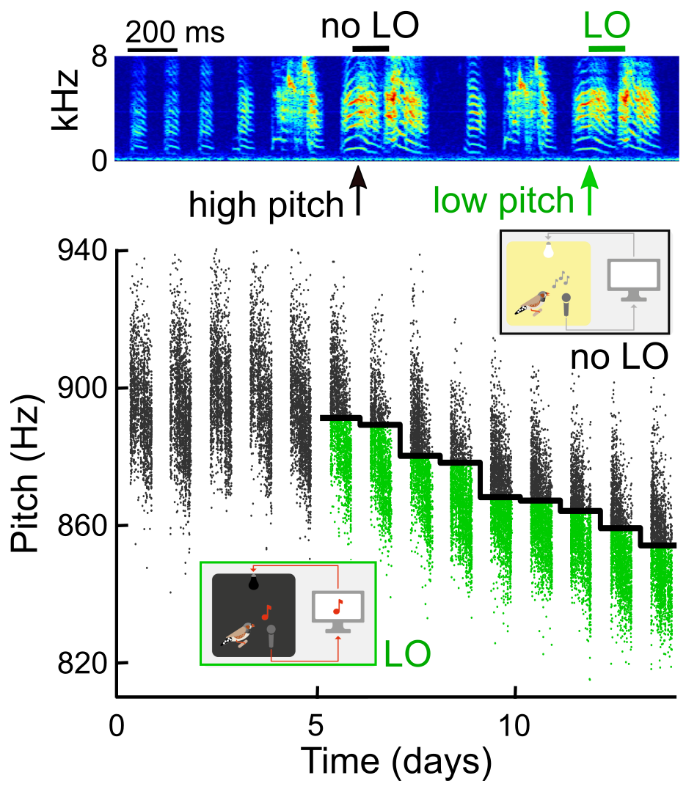Sensory substitution

Songbirds are able to learn a song by imitation of an auditory template. They memorize an auditory template they hear from a tutor and then gradually change their own unstructured vocalizations until they achieve a good copy of the tutor song (1). Auditory feedback remains important for songbirds even in adulthood for song maintenance (2,3) and can be exploited for learning (4).
In a sensory substitution study (5) we did in collaboration with the group of Nicolas Giret at the Institute of Neuroscience Paris-Saclay, we found that songbirds have a very basic need, which is to experience reliable feedback from their singing. Exploiting this need, we were able to incite adult birds to make targeted changes to their vocal repertoire in the absence of auditory feedback, showing that evaluation of auditory performance is not necessary for vocal plasticity in adulthood. This finding does not rule out the use of vocal performance for template-based song learning. However, it shows that some forms of vocal learning do not rely on auditory representations of song. This raises the question whether a template needs to be auditory as is commonly assumed or could also be from a different sensory modality e.g. visual.
To test whether songbirds can learn a song from a visual, rather than an auditory template, we are working on a sensory substitution system that records the bird’s song and provides real time feedback to the bird using visual stimuli.
Student Project
If you are interested in this project for an MSc Thesis or Semester Project, please get in touch with Anja Zai
References
- Konishi M. The Role of Auditory Feedback in the Control of Vocalization in the White‐Crowned Sparrow. Zeitschrift für Tierpsychologie. 1965 Jan 12;22(7):770–783.
- Nordeen KW, Nordeen EJ. Auditory feedback is necessary for the maintenance of stereotyped song in adult zebra finches. Behav Neural Biol. 1992 Jan;57(1):58–66.
- Lombardino AJ, Nottebohm F. Age at deafening affects the stability of learned song in adult male zebra finches. J Neurosci. 2000 Jul 1;20(13):5054–5064.
- Tumer EC, Brainard MS. Performance variability enables adaptive plasticity of “crystallized” adult birdsong. Nature. 2007 Dec 20;450(7173):1240–1244.
- Zai AT, Cavé-Lopez S, Rolland M, Giret N, Hahnloser RHR. Sensory substitution reveals a manipulation bias. Nat Commun. 2020 Nov 23;11(1):5940.